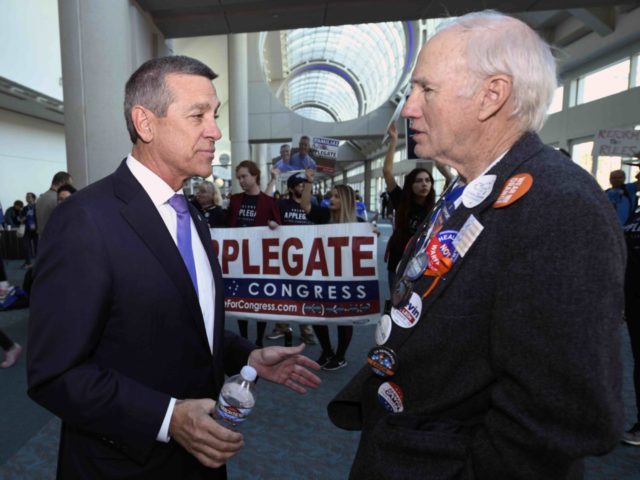Democrat prospects to recapture a Congressional majority are being undermined in some California districts by the fact that there are too many Democrat candidates competing in primaries.
The Democrats held a 32-seat U.S. House of Representatives majority in 2009, and now suffer a 24-seat deficit. But the Washington Post reported in December that Democrats expected to regain control of the House and possibly the Senate in 2018.
The president’s party usually loses seats in the House in an off-year election, and Cook Political Report’s Partisan Voting Index found the “generic Congressional ballot,” measuring voter preference for a Democrat versus a Republican, favored Democrats regaining a majority by taking 32 to 39 Republican seats.
A big part of Cook’s forecast for a 2018 Democrat election tsunami involves Democrats taking some of the last 10 remaining Republican-held Congressional seats in California. But the enthusiasm among Democratic candidates has, ironically, made that more difficult.
The state’s “top two” or “jungle” primary system includes all candidates, from all parties, on a single primary ballot. The stop two finishers advance — meaning that multiple Democrats could split their party’s vote, enabling an all-Republican final.
Moreover, the California Democratic Party convention last weekend failed to endorse any candidate for the targeted seat held by retiring Republican Darrell Issa in the 49th congressional district.. Mike Levin garnered 57 percent
Orange County’s other three Republican-held congressional districts, which were all targeted by the national Democratic Party, also failed to produce clear Democratic endorsements due to numerous inter-party candidates splitting votes.
In northeastern Orange County’s 39th congressional district, where Republican Congressman Ed Royce is retiring, none of the 8 Democrats running received the party’s endorsement, despite Democrats raising $5,548,073 for the primary overall.
The Political Research Quarterly found that in California’s “top-two” election system, the Democrat endorsement generated a gain of between 7 and 15 percent of primary votes.
Multiple Democrats splitting the primary vote without a party endorsement in the 39th and 49th Congressional primaries could result in Republicans destroying the Democrats’ plan to flip the seats.
The California primary is June 5.

COMMENTS
Please let us know if you're having issues with commenting.